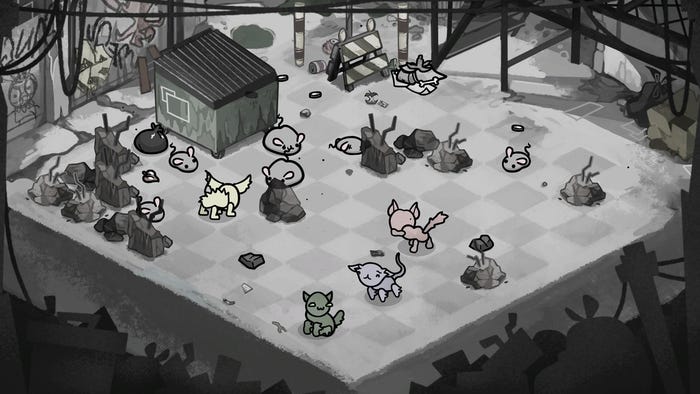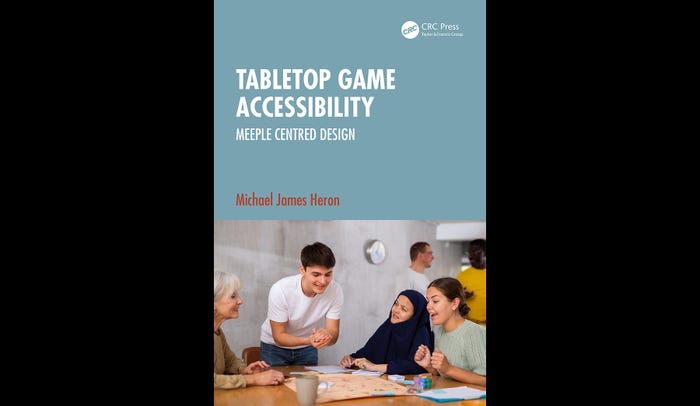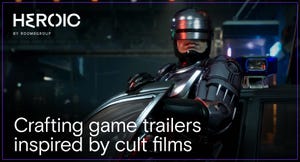This Week In Video Game Criticism: Come Together, Let's Art
Our weekly roundup of notable game criticism from around the web, in partnership with Critical Distance, examines discussions on art game history, QA, and The Beatles: Rock Band, among many other things.

[We're partnering with game criticism site Critical Distance to present some of the week's most inspiring writing about the art and design of video games from commentators worldwide. This week, Ben Abraham looks at art game history, QA, and The Beatles: Rock Band, among many other things.] This week Frank Lantz was at the Art History of Games conference and he reports back to say that, ‘Doom is too Rock ‘n’ Roll to ever be confined to a museum, man’! But not quite in those words. The AHoG conference was talk of the town this week, and Charles J Pratt wrote up some of the speakers he heard, covering the opening panel and a talk by the aforementioned Mr. Lantz and John Sharp on ‘avoiding the domestication of game art’ for GameSetWatch. As a response to some of the things that came out of the conference, Corvus Elrod talks about how dictating what games aren’t through manifestos, etc, can only reduce their cultural relevance. But if you’re looking for a more satirical take, you really can’t go past Matthew Burns’ “The new debate on games as ert” (sic). In the same week he also comes back to finish his series for Edge Online about QA testing ‘In the Dungeon’ with parts two, three and four. Another new blog began its life this week, by one Amanda Cosmos, and her first post talks about the Global Game Jam and her team’s game ‘Quest for Stick’. Elsewhere, Michael Abbott writes about Mass Effect 2 and what it says about the evolving nature of video game genres. Abbott notes: “Bioware knows what we who write about games ought to know better. Genre classifications are essentially meaningless, and it's time to drop them and move on.” It’s a sentiment echoed to some degree by Jim Rossignol in Rock Paper Shotgun’s latest podcast, episode 38, and the resultant audio includes a great contextualized discussion of game genres throughout history. Gus Mastrapa at Wired’s GameLife blog says ‘21st-Century Shooters Are No Country for Old Men’, noting: "Young gamers are somehow better than older gamers. Is it because they have fewer responsibilities and more free time? Or is it their youth that keeps them sharp?" At a mere 23, I think even I count as old in this scenario. Via fellow blogosphere overviewer and synthesizer Erik Hanson comes a tale of ‘Myst as mythology of the hyperlink’. LB Jeffries adds to the previous week’s discussion of No More Heroes 2, picking out some of its problems. Also on NMH2, Chris Dahlen writes for his Edge column that what the sequel is missing is really ‘the loser mechanic’ from the original. Denis Farr this week examined the rather baffling choice Bioware made with regard to male-male relationships in Mass Effect 2. Farr highlights a quote from executive producer Ray Muzyka in which he explains the choice to limit any and all Male commander Shepard’s to an essentially straight male role. As Farr notes: “This tells me that I can create my Shepard, but he or she isn’t mine, actually.” In other commentary, Grayson Davis uses a discussion of Uncharted 2 to argue quite convincingly that our vocabulary for discussing video game graphics remains an ephemeral, hard-to-pin-down thing. Davis wonders: “…why can I quote decade-old reviews of a game that's only distantly comparable to Uncharted 2 and find the exact same statements, almost verbatim, that I find in today's criticism? These statements aren't wrong, but they're shamefully insufficient.” Peter Kirn at Create Digital Music runs down the new music based game ‘Chime’ that I’ve been hearing good things about. The game is part of a charity-based collective, OneBigGame, that aims to raise funds for children's charities. After a negative piece early in the week explaining how difficult the BioShock 2 hacking mini-game is for people with colorblindness, Dan Griliopoulos (who is colorblind himself) writes about the issue for Rock Paper Shotgun. And lastly, Nicholas Shurson -- formerly of the Form8 blog -- has started The Game Journal, hoping to attract a mature audience interested in reading about and talking about videogames. This week he’s written about the The Beatles: Rock Band in ‘Come Together’, the second post named for a Beatles song we've mentioned in as many weeks.
Read more about:
2010About the Author(s)
You May Also Like









.png?width=300&auto=webp&quality=80&disable=upscale)



